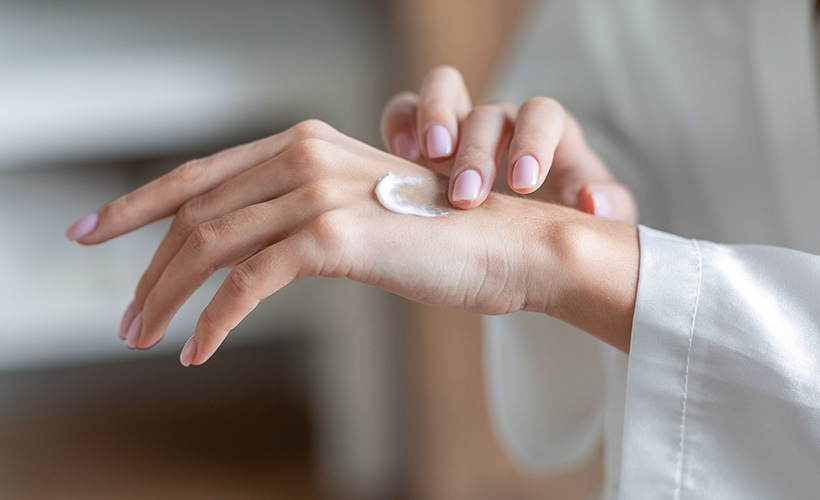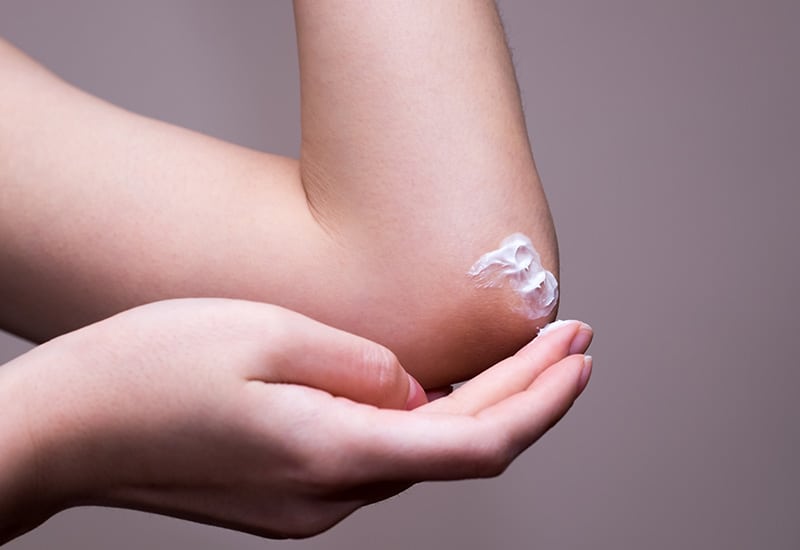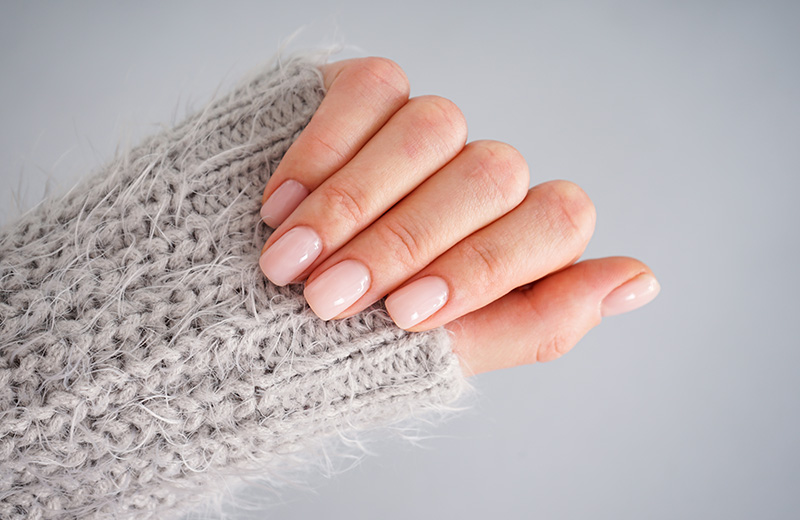The skin is your first barrier of protection from the outside world. It should keep the moisture in and infections out. Usually this works well, but most of us suffer with dry skin at some time in our lives and this will disrupt the barrier protection of your skin.
Why do I get dry skin?
Dry skin is when your skin cannot keep enough moisture in the top layers of your skin. This leads to dry scaly looking skin and sometimes it also feels itchy or looks red and rough.
There are a number of possible causes for dry skin. These can include long soaks in the bath instead of a quick shower or using harsh soaps that strip moisture from you skin. Sun damage leads to dry skin and of course in New Zealand there is higher risk of sun damage than in many other countries.
As we age, our skin thins and is more likely to become dry. Most people over 60 years old have dry skin to some extent and need regular moisturising.
There are lots of other causes including not drinking enough water, the type of skin you inherited from your parents or just the weather where you live. In colder parts of New Zealand the air tends to be drier. When the air is dry it is difficult for your skin to keep its moisture, so you are more likely to have dry skin in Dunedin for instance, than in Auckland. Of course there are also areas in New Zealand that are warm and dry which will also dry out your skin.
Dry skin is often itchy. Dry, itchy skin can be a symptom of eczema or other health conditions, but often it is just dry skin needing moisture.
Signs of dry skin
Some people only get dry skin in winter due to the weather where they live or heaters inside drying out the air at their home or work. Some people only get dry skin in summer because they are outdoors a lot and maybe not protecting their skin from the sun.
As skin dries, it starts to feel tight and rough, and then it can become itchy. Skin can be just a little bit dry or very very dry. If it is very dry and flaky, your skin might look a different colour than usual due to the dead dry skin cells sitting on top of your skin.
Dry skin can cause scaling or peeling that can be just a little or quite severe. Sometimes people complain their legs look like dried mud that has cracked. This is the dry skin cells sitting on top of the underneath skin, like little islands of dead skin.
As skin becomes drier there will be fine lines and cracks and then deeper cracks that bleed, especially dry skin on hands or feet. It is important to treat dry skin before it becomes really dry and difficult to help.
What can I do about dry skin?
Moisturising is the first step and it is easy to do. A good moisturiser will put water back into the top layers of your skin and seal the moisture in so it isn’t drawn out by dry weather.
There are three main types of ingredients in moisturisers.
- Humectants which draw moisture into your skin. These include glycerine, ceramides and hyaluronic acid.
- There are ingredients that seal your skin so the moisture doesn’t escape these include lanoline, silicone and paraffin oil.
- Emollients make your skin smoother by filling in the gaps between the skin cells. Emollient ingredients you will see listed on your moisturiser bottle will have names like linoleic acid or lauric acid.
Some moisturisers also contain ingredients that will speed up the rate of new skin growth.
If your hands are dry then take a hand cream everywhere with you, and apply it often. For legs and arms, apply moisturiser as often as you can and certainly at least morning and night. If your lips are dry keep a lip balm with you and put it on as often as you can. Do not let your lips crack or they tend to get infected in the corners. If this happens talk to your pharmacist and treat the infection as well as the dry lips.
There are lots of choices for moisturisers. Talk to the pharmacy staff and ask for a recommendation for what it best for you depending on where you have dry skin and how much of a problem it is. They may also recommend a soap substitute. Doctors and skin specialists often prescribe a cream to use instead of soap for people with dry skin or eczema. You can buy these soap substitutes from the pharmacy without a prescription. If your skin is itchy and red there are special anti-itch, anti-inflammatory washes available.
Drink enough water (six to eight glasses per day).
Wear sunscreen with SPF 30 or more.
Don’t let heaters dry out the room too much in winter. Some people put a bowl of water somewhere in the room to keep moisture in the air at home or work when the heater is going.
Make sure your bath or shower is warm not hot. Stay in for no longer than five or ten minutes. Long soaks in hot baths dry your skin.
When to see your doctor
Most of us can treat our dry skin ourselves by using a good moisturiser, protecting our skin from drying out or getting sunburnt and drinking plenty of water.
Do talk to your doctor if you have tried everything and nothing works. Also see you doctor if:
- your skin is cracked and bleeding
- the dry skin is painful or uncomfortable and is keeping you awake at night or distracting you with scratching during the day
- if you have large areas where the skin is scaly or peeling
- if there is a build-up of dry skin like psoriasis
- if you have infected sores in the areas of dry skin from scratching or the skin cracking.
Most importantly find a moisturiser you like to use and use it often.
Written by: Linda Caddick
This blog provides general information and discussion about medicine, health and related subjects. The information contained in the blog and in any linked materials, are not intended nor implied to be a substitute for professional medical advice.

















Community